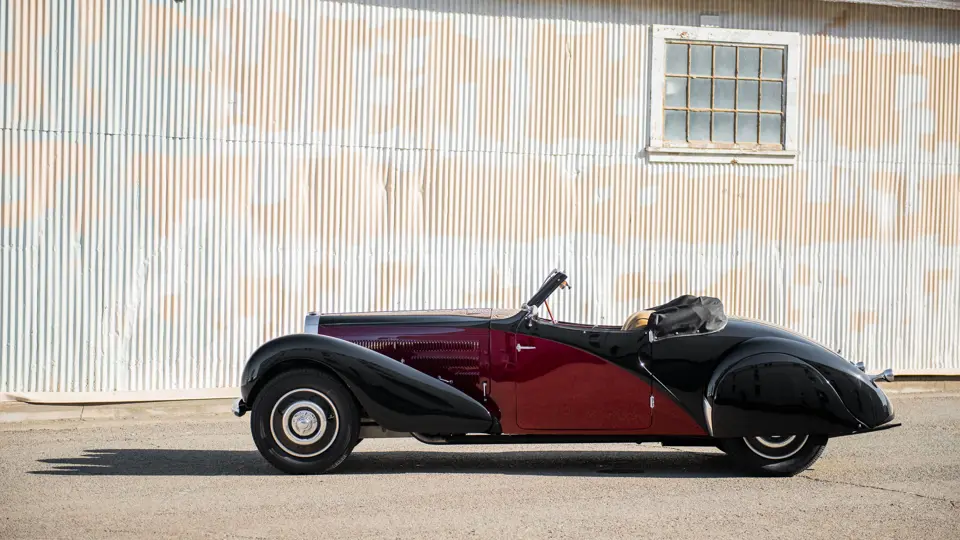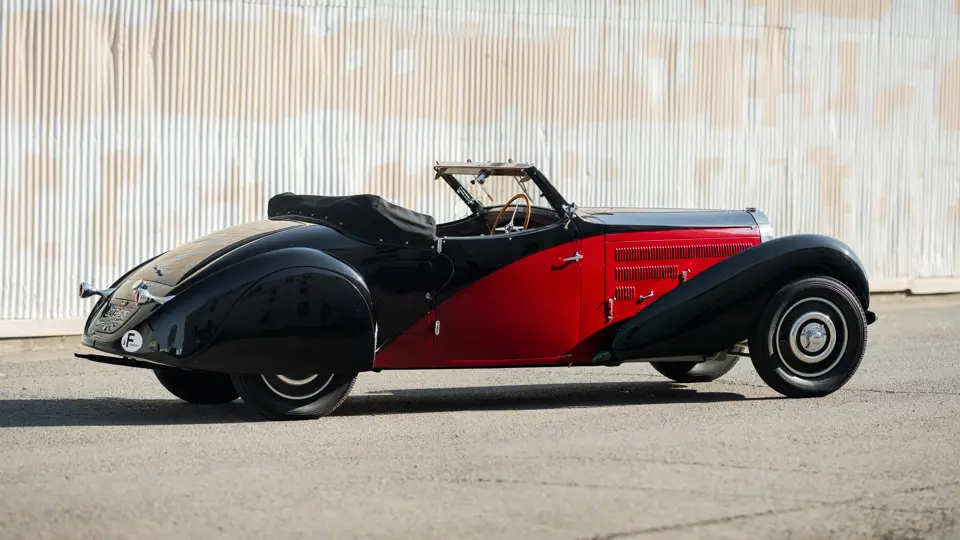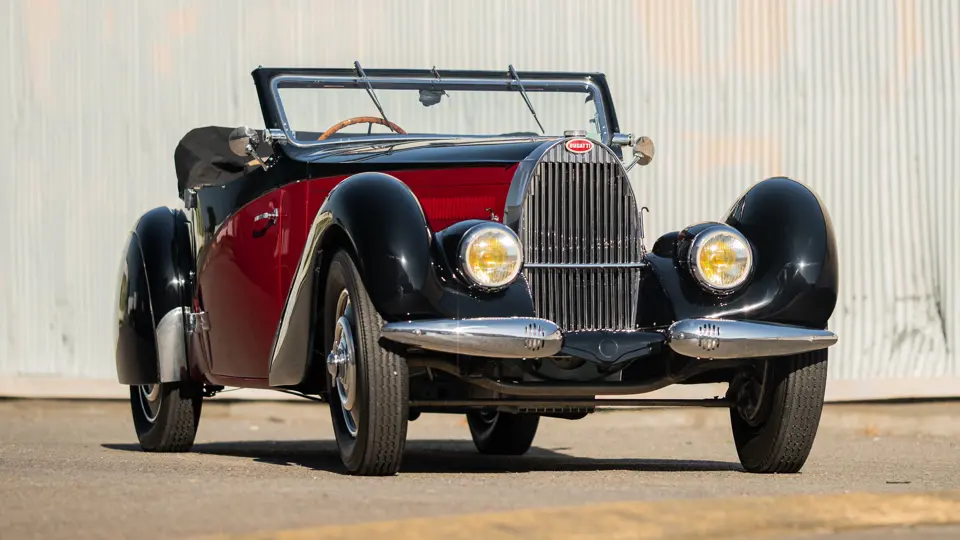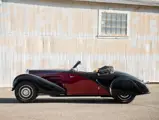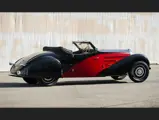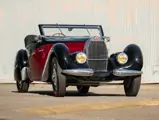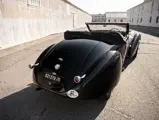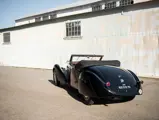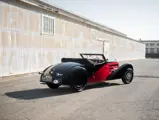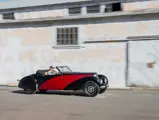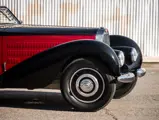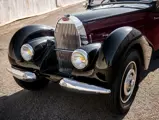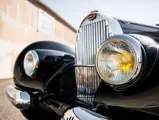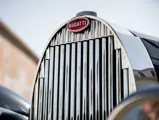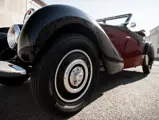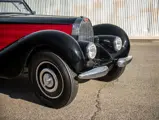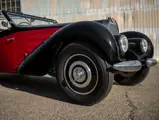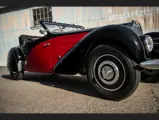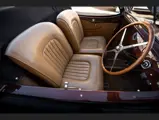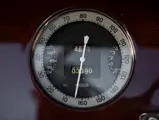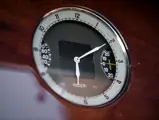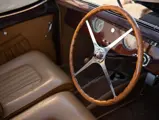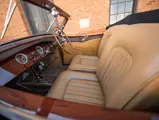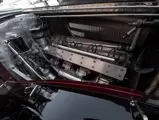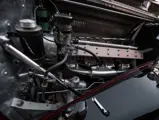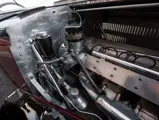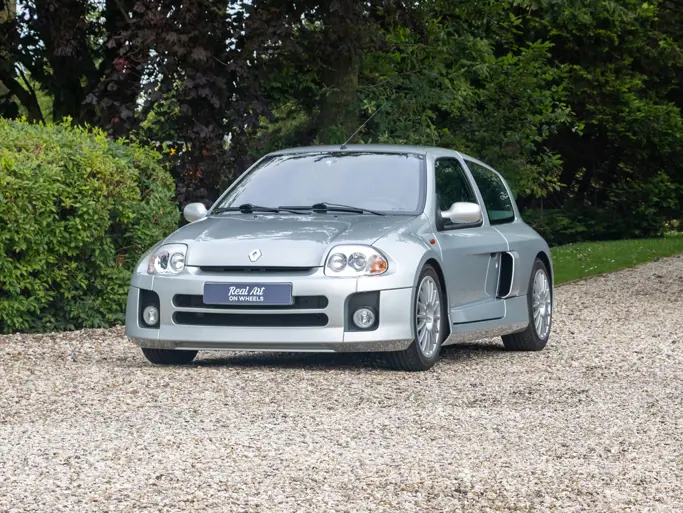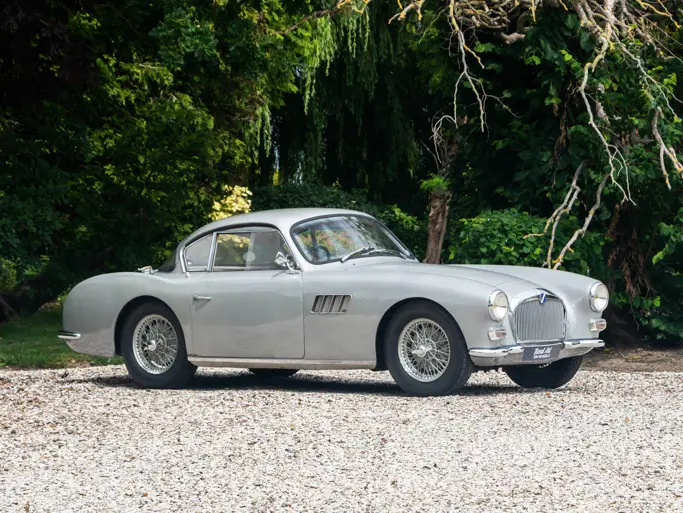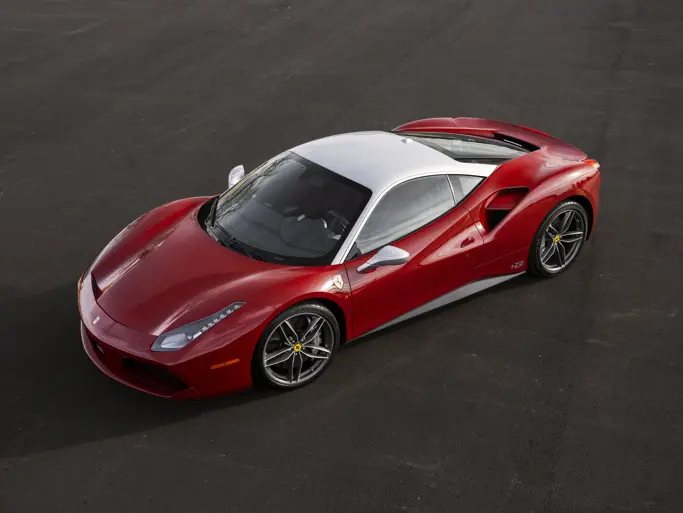
1936 Bugatti Type 57 Cabriolet
{{lr.item.text}}
$500,000 USD | Sold
Offered from Masterworks of Design
{{bidding.lot.reserveStatusFormatted}}
- Striking open coachwork based on an early example of the famed Atalante
- Accompanied by a detailed history report from noted historian Pierre-Yves Laugier
- Well-preserved cosmetic restoration by the Carrosserie Lecoq
According to Bugatti historian Pierre-Yves Laugier, this Type 57 was the second of seven examples of the famed Atalante, known in its early form—as here—as simply the Faux Cabriolet; it sported a fabric roof that opened all of the way to the rear of the car, similar to the top of a Citröen 2CV. Built in June of 1935, it was registered 8 June 1935 to a Lucien Blanc of Agen, who registered it there as 2049 JV 2. Mr. Blanc was a known Bugatti client, having earlier acquired a Type 35. In his ownership the Type 57 was photographed by Bugatti enthusiast Jim Byrom at Spanish Customs later in 1935.
About one year after his purchase, Mr. Blanc sold the Type 57 to an unknown owner in Paris, who registered it there on 7 August 1936 as “6273 RK 5.” This owner kept the car for two years before selling it in September 1938 to Georges Pilon de Loynes of Nantes, where it was registered “9941 JH4.” Mr. de Loyne, in turn, passed the Bugatti, still in its original colors and configuration, to Pierre Douarre, an airplane pilot then studying at the air school at Versailles. When he left for the Russian Front in 1944, it was likely left near Toulon, his original home, and survived the rest of the war there, before being put back on the road by a Marseilles-area mechanic in August 1946.
On 26 August 1946, the car was registered as “6788 CB4” in the Bouches du Rhone by Jean Filippi, with, somewhat confusingly, the identity of a Type 49, number 49258, believed to have been broken up during the war. At this time, the Type 57 was now a drophead coupe, retaining most of the original Faux Cabriolet body, but with the roof removed and the additions of new bumpers, chrome rear fender trim, a folding windscreen, and a rear luggage rack. Mr. Laugier believes that at the time of these modifications the car may have been fitted with its present second-series Type 57 frame.
Less than one month after Mr. Filippi registered the car, it was sold to Marcel Maillet, the first of several short-term Marseilles owners who would possess the Bugatti before it returned to Paris in August 1949. Christian d’Epenoux, later to become a well-known reporter for L’Express known as “The Baron,” bought the car at an auction held by Les Domaines in that city in 1956. Unfortunately, he was unable to keep the Bugatti for very long, as his student finances necessitated its sale for the then-remarkable sum of 3,000 Francs to Alexandre Babeanu, a chemical engineer.
In 1974 the car was purchased by Bugatti enthusiast Claude Jeangirard of the Loire Valley, for whom it was maintained by well-known specialist Henri Novo for nine years. Jeangirard passed it in 1983 to noted and prolific Bugatti collector, Michel Seydoux. In Seydoux’s ownership the Bugatti was refinished to black and red by the noted Carrosserie Lecoq, and had the mechanical components overhauled by Gaston Garino of Puteaux. The current collection then purchased the cabriolet from Mr. Seydoux in the late 1990s, and it has remained largely out of public view ever since.
Inspection of the car today shows that, typical of Lecoq’s quality workmanship, it remains in high-quality cosmetic condition from stem to stern, attractive in presentation both inside and out. No serial number tag is present, and the engine number appears to have been removed. At some point the left-hand chassis frame was stamped, on its top surface near the firewall, with a Type 46 number, 46512, but this is believed to have done for a prior registration, as the font is not correct and the frame is, as mentioned, correct for a second-series Type 57. While at one time the car was known during Mr. Seydoux’s ownership as 57668, likely due to being fitted with its registration number, the Laugier report clearly indicates that this vehicle it bears no part of that car, a Gangloff Stelvio, and is indeed 57263 with its cabriolet modifications and second-series frame as refinished by Jean Filippi.
This is a most fascinating and unique Bugatti, of special design and with a fascinating past.




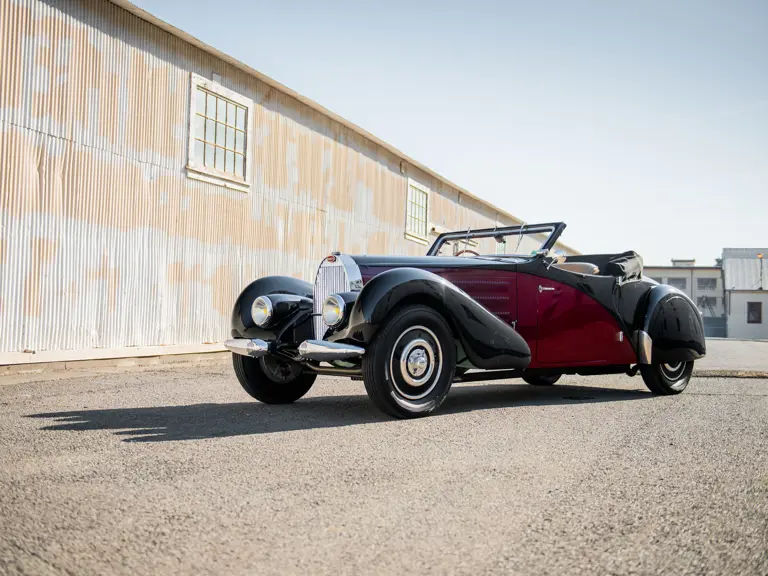
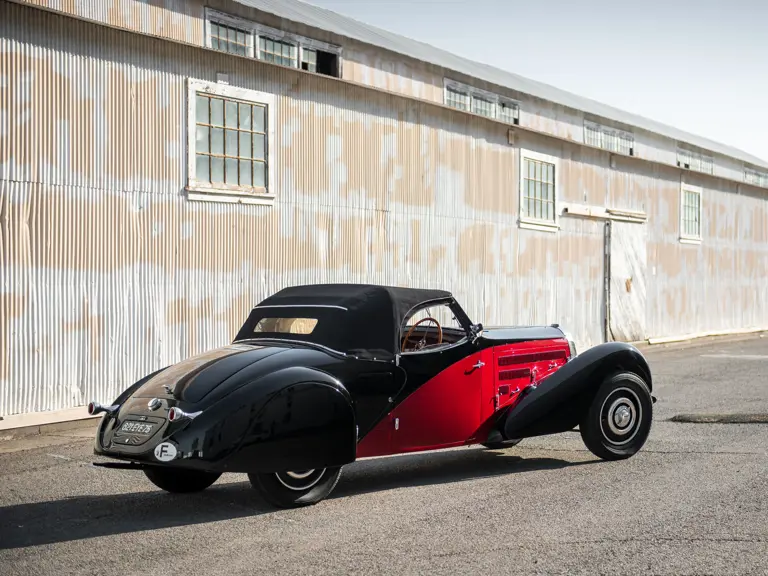
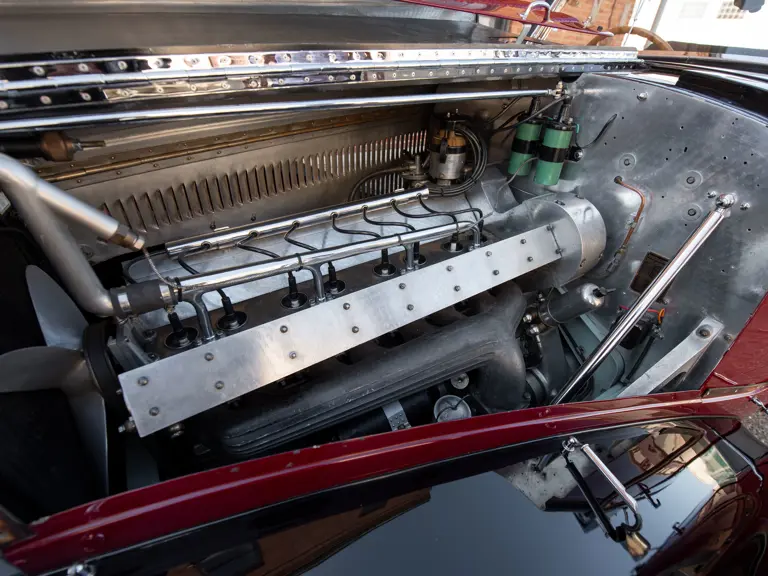
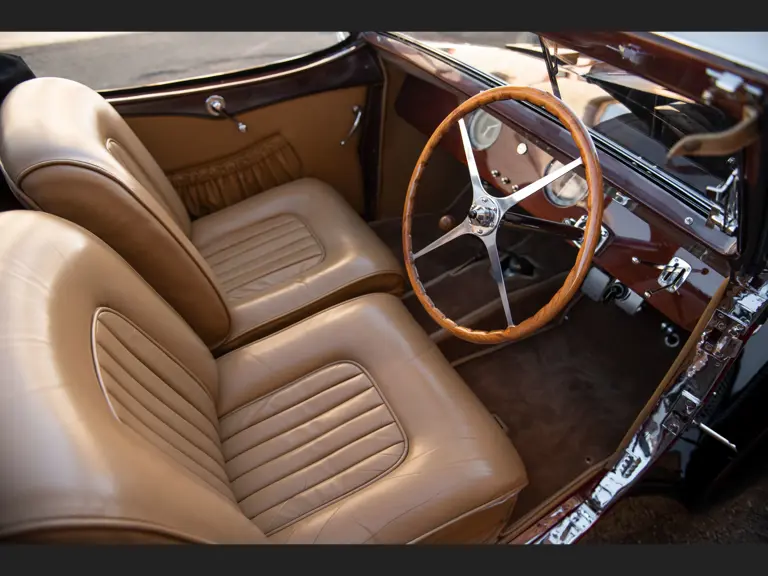
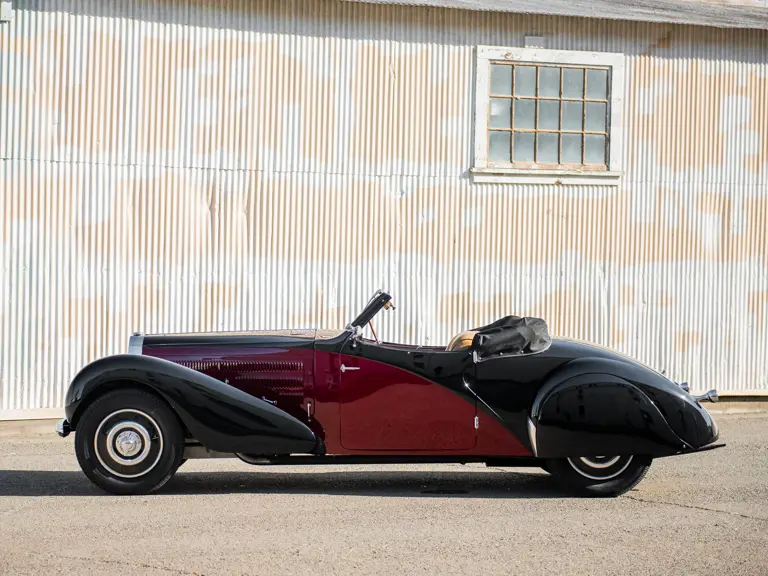
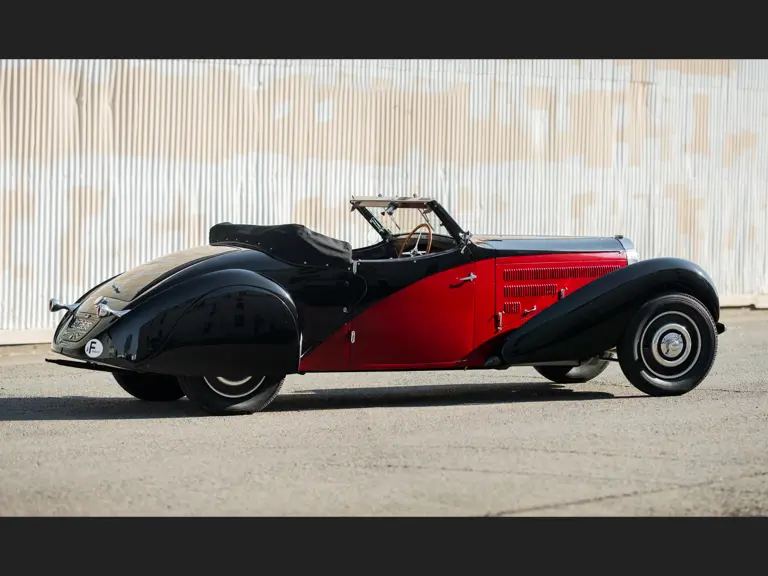
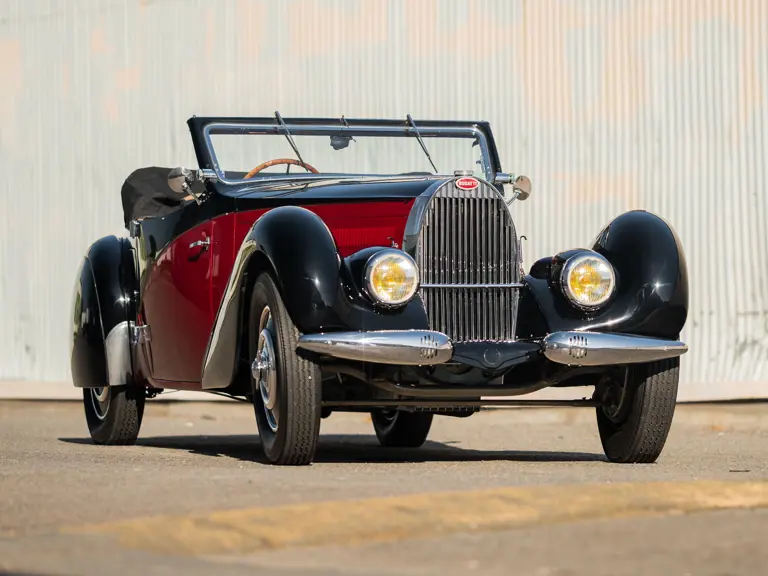
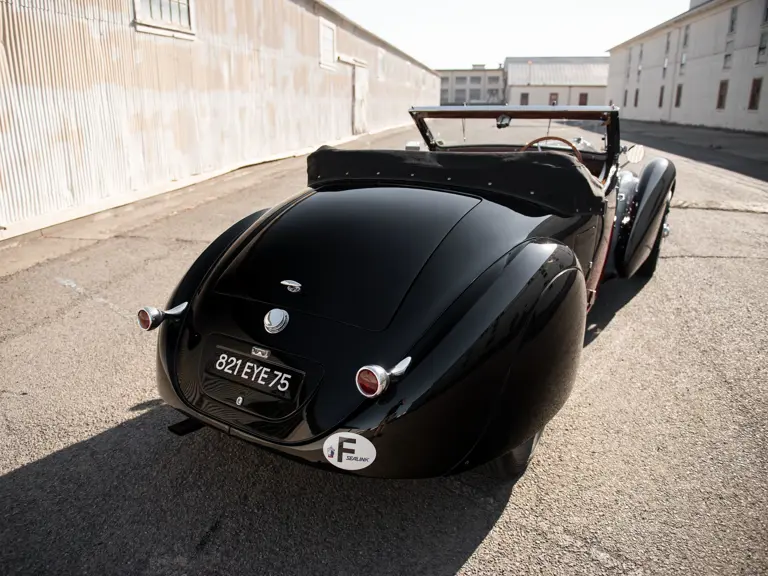
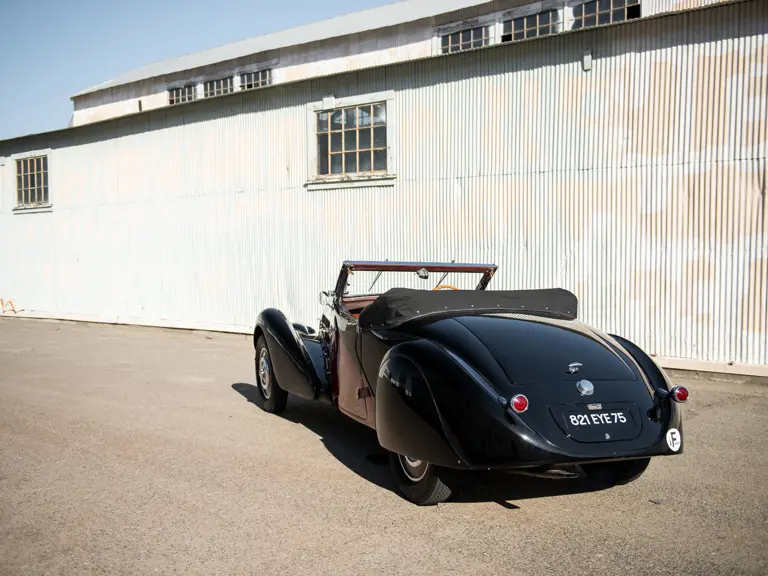
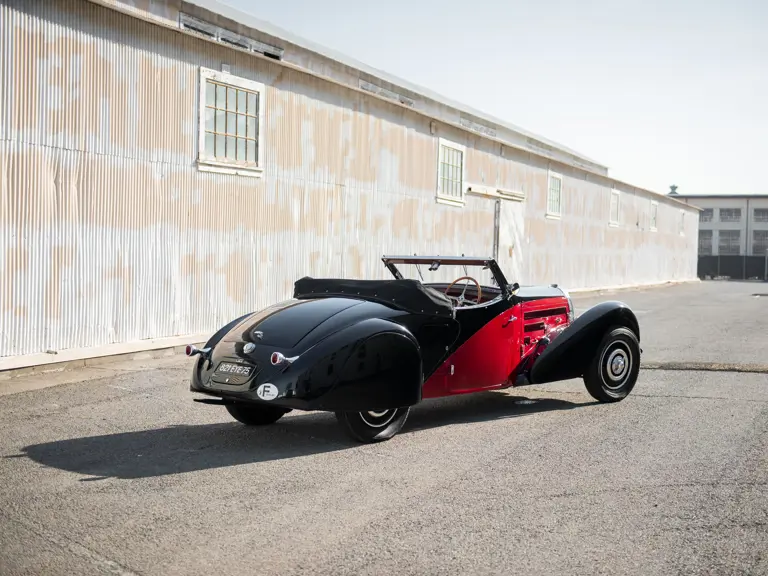
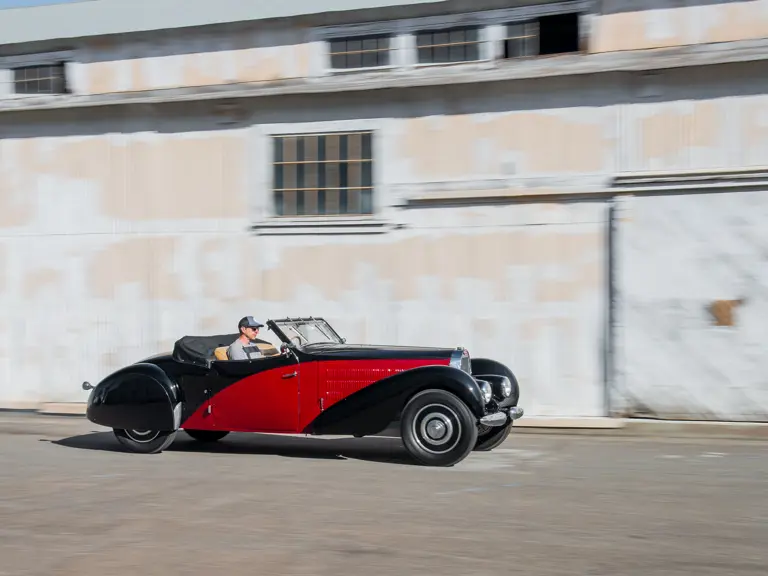
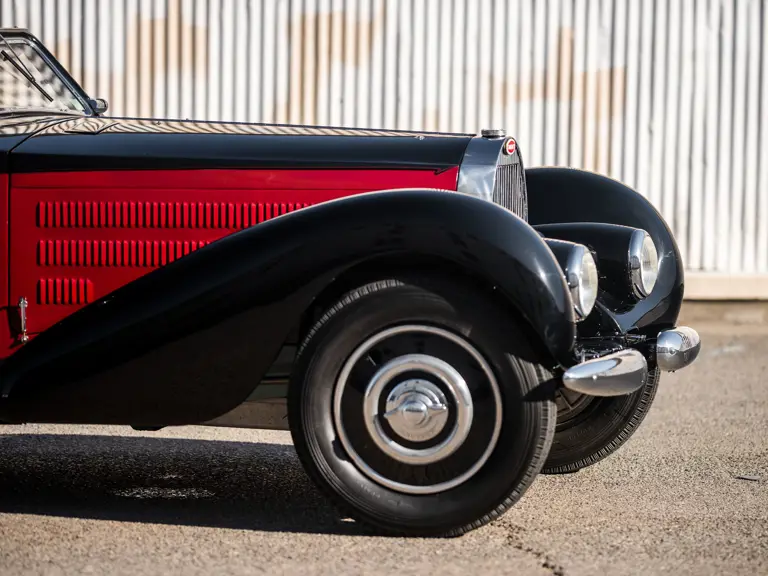
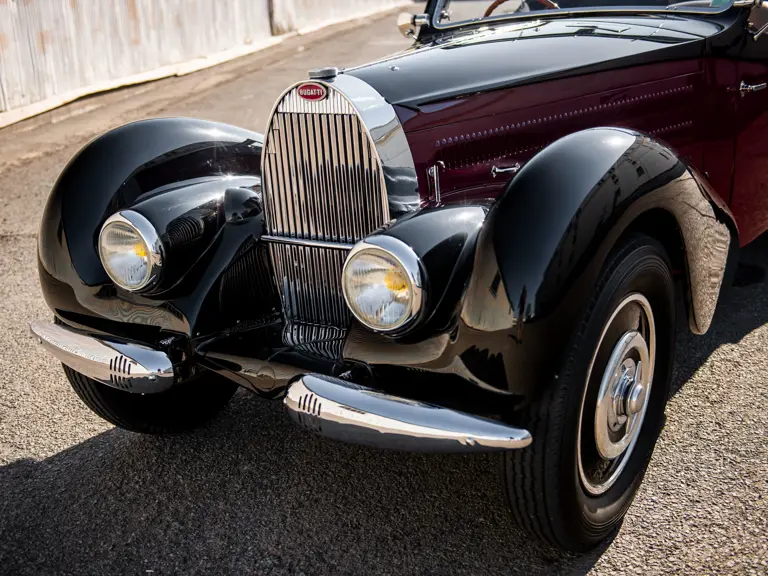
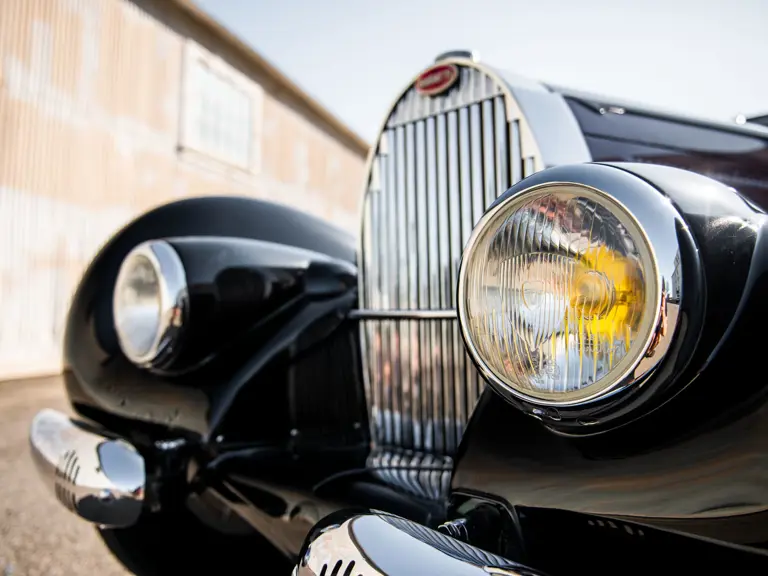
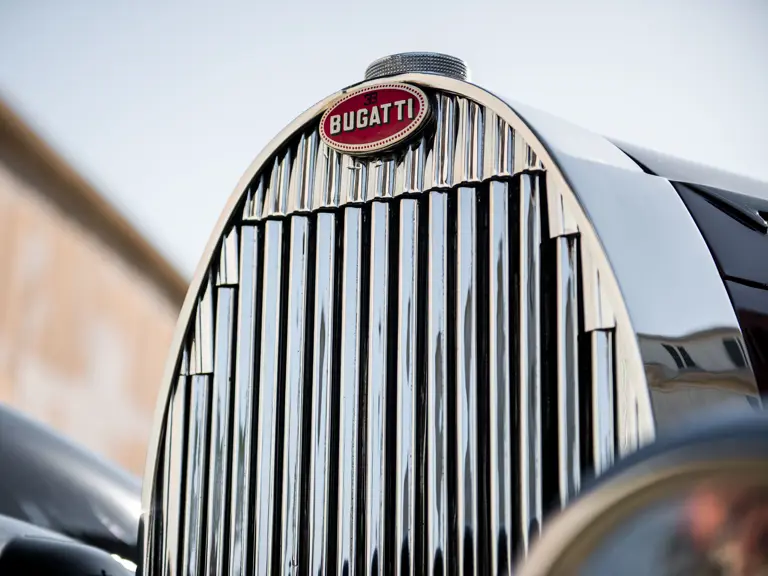
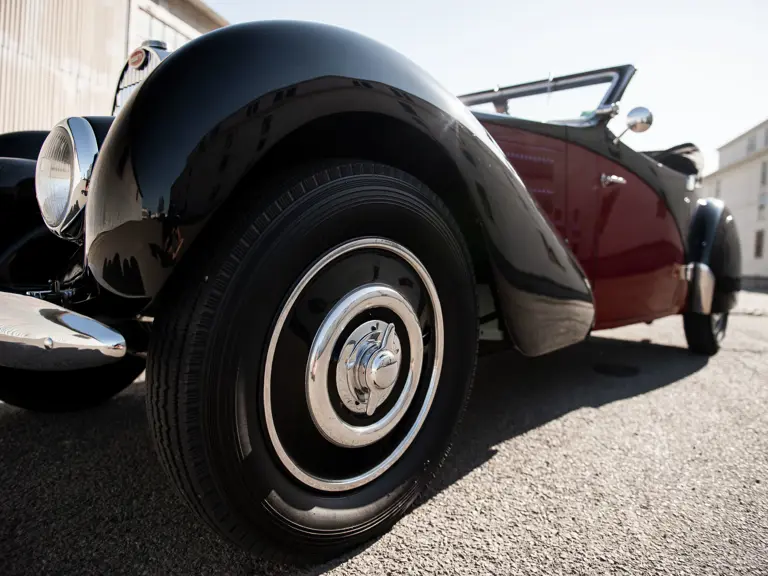
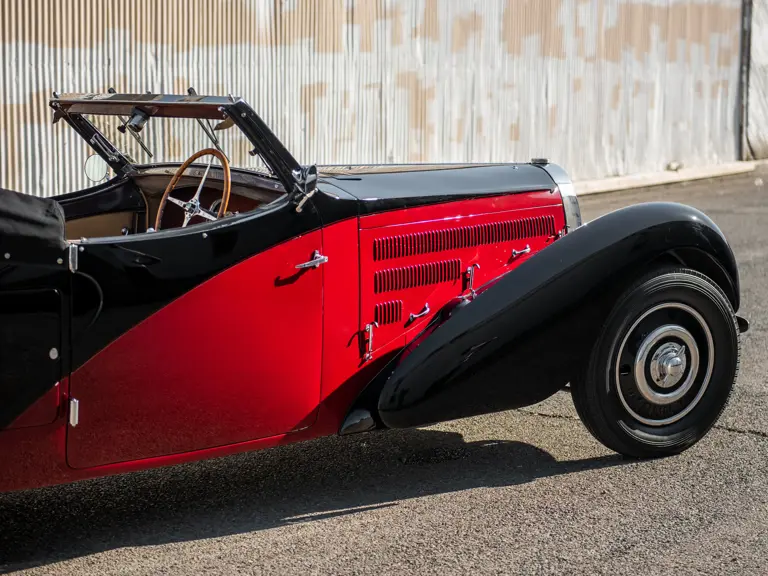
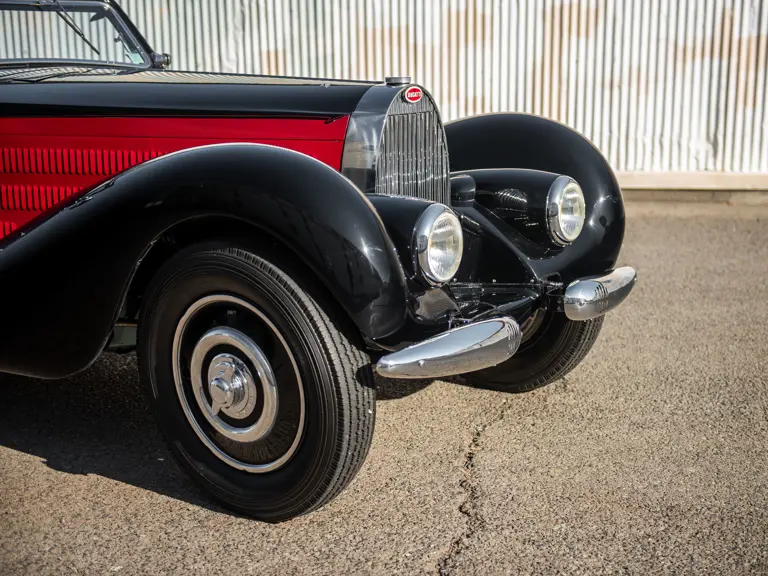
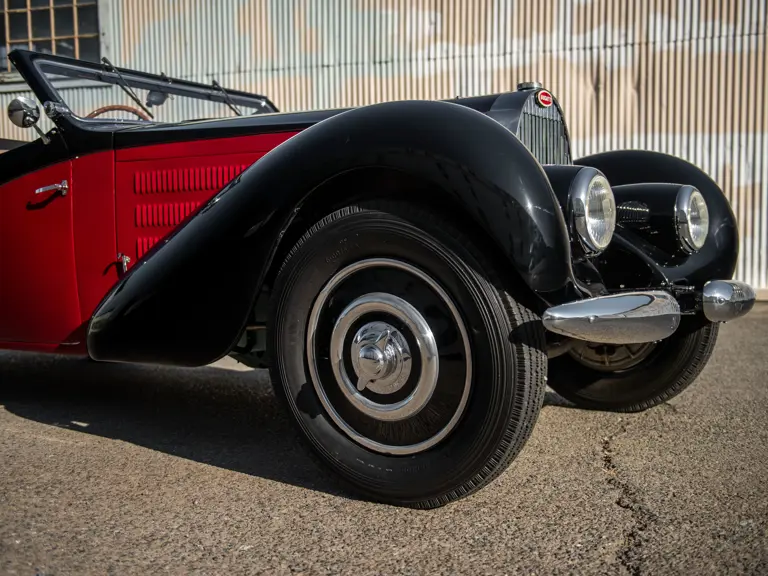
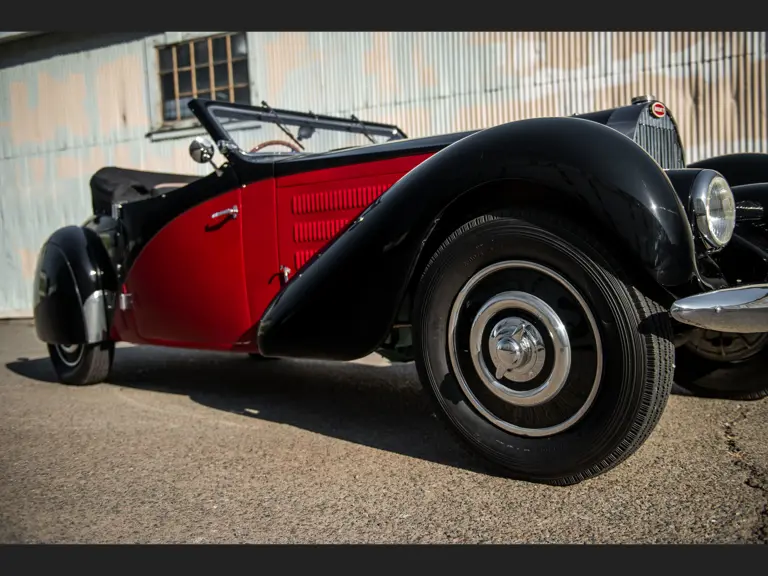
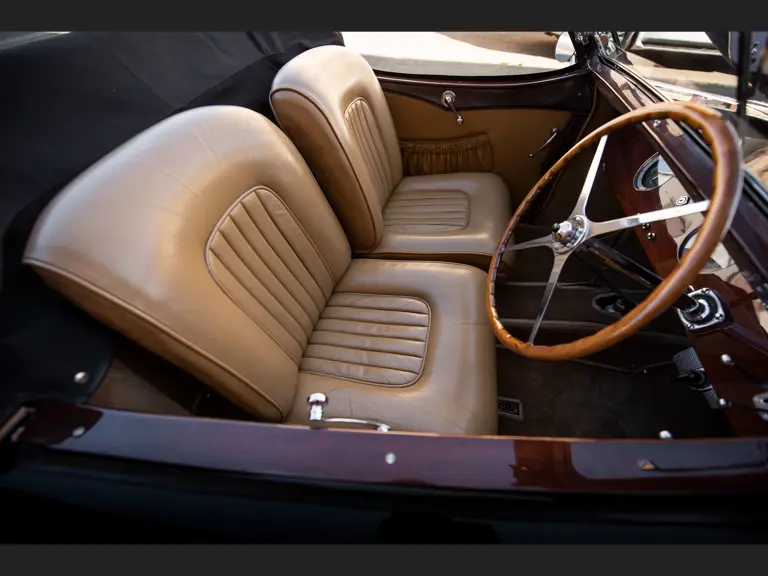
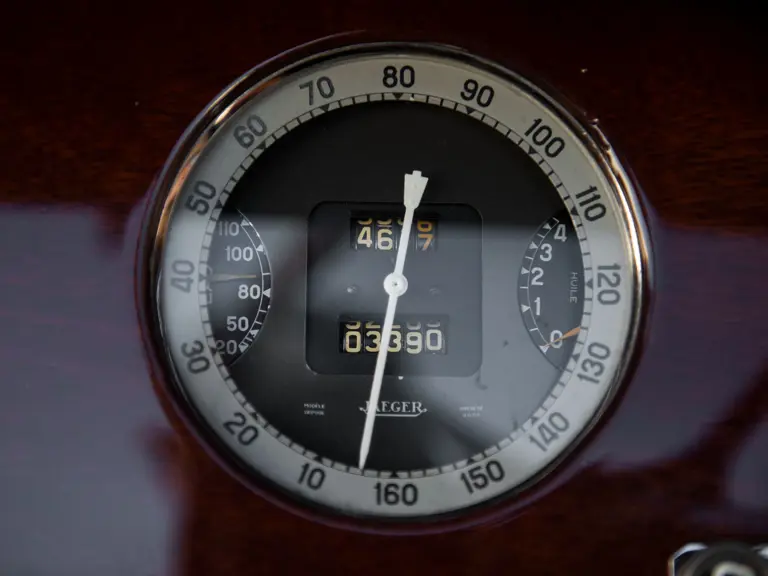
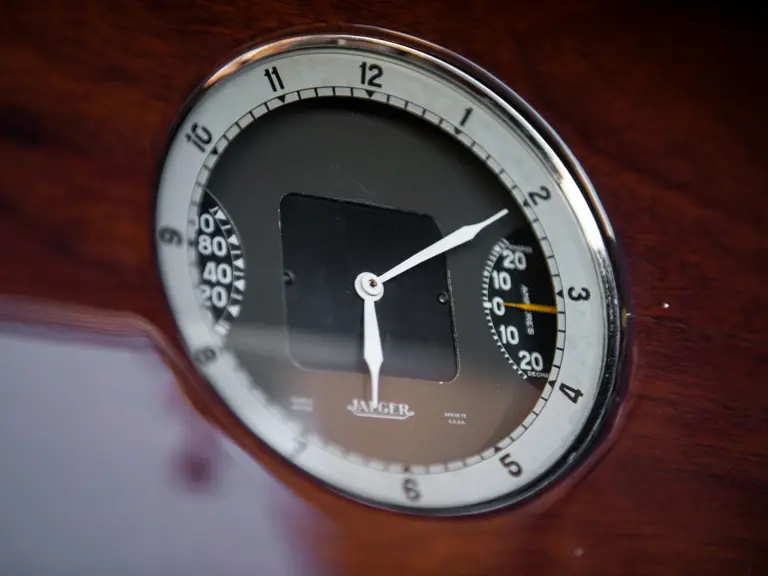
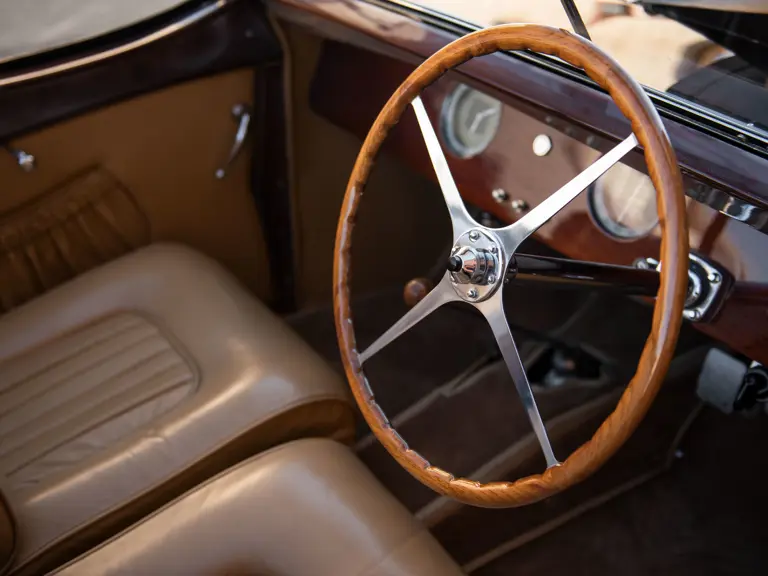
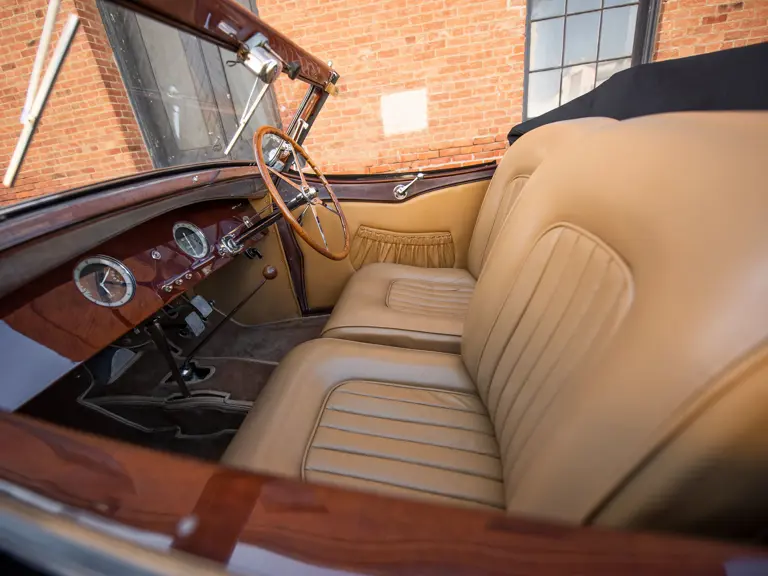

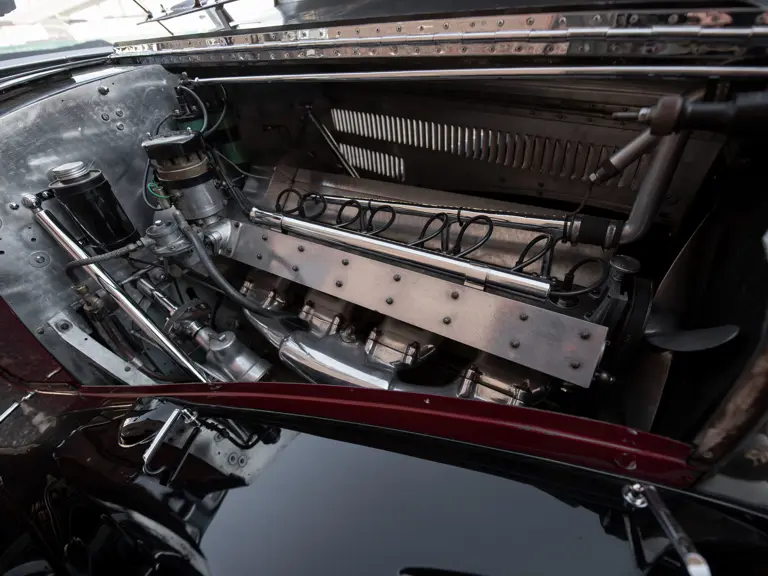
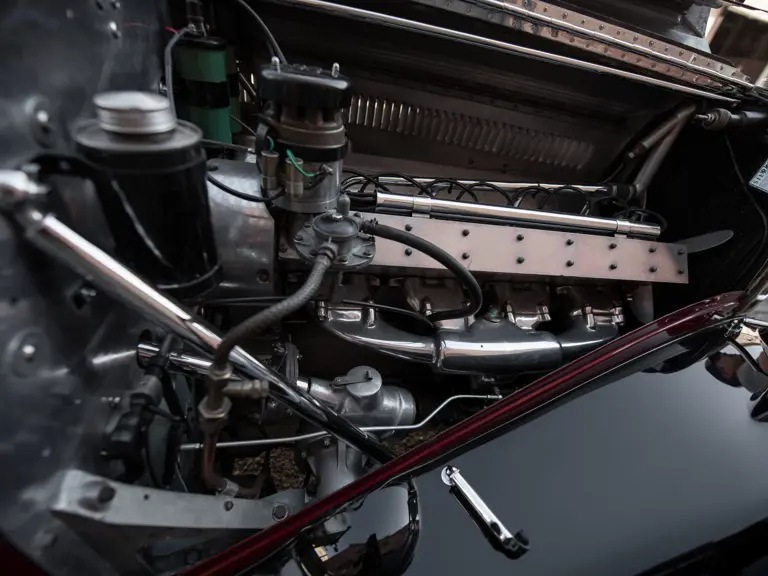
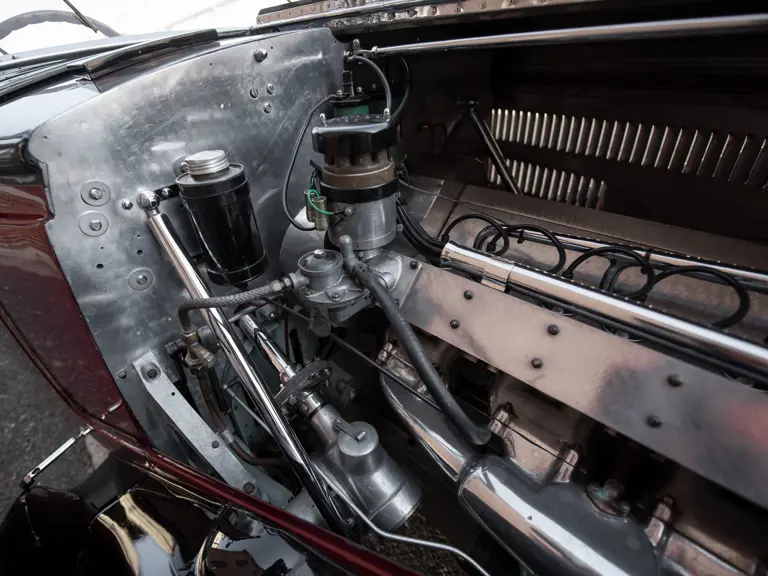
 | Monterey, California
| Monterey, California
